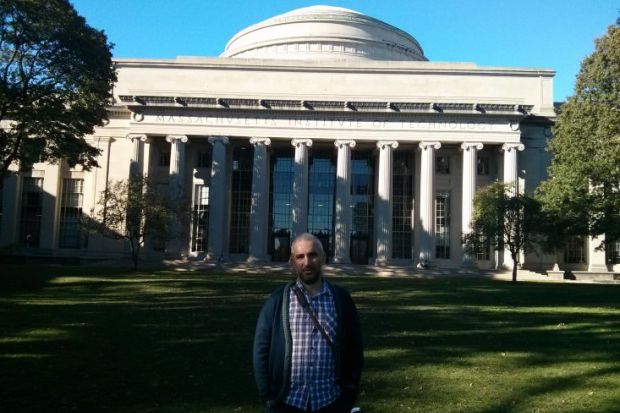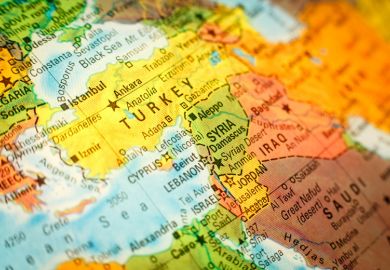Three theoretical physics papers published earlier this month by a Turkish researcher end with an unusual acknowledgement.
“This work, which has been done...without any possibility of using references, is dedicated to my friends at rooms C-1 and E-10 who made my stay bearable at hell for 440 days between 7.10.2016 and 20.12.2017. I am also indebted to the colleagues who show support in these difficult times,” writes Ali Kaya, a professor at Boğaziçi University in Istanbul.
Professor Kaya, imprisoned on terrorism charges following Turkey’s failed coup of 2016 and subsequent government crackdown against academics, said that he wrote the papers in total isolation from outside scholarship using just a pen and paper.
Access to a computer and the internet in jail were “out of the question”, he told Times Higher Education. “They isolated us from the rest of the world.”
During his nearly 15-month imprisonment near Istanbul, even specialist physics books or papers were banned, despite a request from his lawyer. Professor Kaya’s PhD student unsuccessfully tried to send in physics papers, but they were rejected for not being in Turkish, he explained. She tried resending them after translating them into Turkish using Google Translate, but they were still rejected. “I couldn’t get anything about physics,” he recalled.
But “the beauty of theoretical physics” is that “to do research, you only need paper and pen”, he said. Deprived of previous scholarship, he had to reinvent the wheel, re-deriving complex formulas from simpler physics principles, he explained. It was a “headache”, he said, but “at the end of the day, I think I got good results”.
He worked in an unexpectedly academic environment. Professor Kaya’s prison dormitory – about 140 metres square, with a yard half as big, and 10-metre-high walls, he recalled – was shared with about 20 other highly educated prisoners who the authorities had decided to keep together, he said. “The majority of them were university graduates,” and included academics, teachers and a doctor, he explained.
“From time to time we gathered to drink tea and discuss quantum physics, relativity, black holes, the Big Bang and science and religion issues,” he said. But “mentally I was not in a very comfortable situation” and racked with worry about his family and children, he stressed. Asked why he kept up his work inside, he said: “You need to do something, or time doesn’t pass in prison.”
Professor Kaya was reluctant to speak about the details of the case against him, but said that he was charged with supporting the exiled cleric Fethullah Gülen, who the government has accused of leading a shadowy network from the US that orchestrated the 2016 coup attempt. The evidence presented against him was “absurd”, he said, and included academic visits to seminars in the US and a sabbatical based at McGill University in Canada. After the coup attempt, “suddenly I become a terrorist according to the state”, he said.
Although he has now been released, he said that his future at Boğaziçi is “not clear yet” and is still fighting a legal battle against his sentence, which was only partially served. Depending on the outcome, he could have to return to jail for another 15 months.
Register to continue
Why register?
- Registration is free and only takes a moment
- Once registered, you can read 3 articles a month
- Sign up for our newsletter
Subscribe
Or subscribe for unlimited access to:
- Unlimited access to news, views, insights & reviews
- Digital editions
- Digital access to THE’s university and college rankings analysis
Already registered or a current subscriber?







